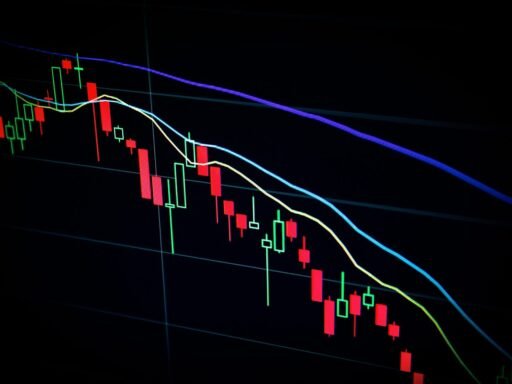Let’s Discuss Bitcoin Price UK and it’s relevant Concepts
Bitcoin, the pioneering cryptocurrency, was introduced in 2009 by an anonymous entity known as Satoshi Nakamoto. It operates on a decentralized network using blockchain technology, which ensures secure and transparent transactions without the need for intermediaries like banks. Throughout the long term, Bitcoin has developed from a niche digital currency to a globally perceived asset, frequently alluded to as “digital gold” because of its shortage and value retention characteristics. Bitcoin Price UK has received huge consideration and reception. A few elements add to this developing interest. First and foremost, the UK’s vigorous monetary framework and well-informed populace establish an optimal environment for digital asset reception. Numerous businesses and retail investors in the UK have integrated Bitcoin into their operations and portfolios, respectively, recognizing its potential as both a medium of exchange and a store of value.
Historical Bitcoin Price Trends in GBP
Understanding the historical price trends of Bitcoin in GBP is crucial for gaining insights into its market behavior and potential future movements. Since its inception in 2009, Bitcoin has experienced significant fluctuations, influenced by various factors ranging from regulatory changes to market dynamics and technological advancements.
One of the earliest notable milestones in Bitcoin’s price journey was in 2013 when it crossed the £100 mark for the first time. This achievement was largely driven by increasing media coverage and growing public interest. However, it was followed by substantial volatility, highlighted by the Mt. Gox exchange collapse in 2014, which caused Bitcoin’s price to plummet from around £650 to under £200.
The year 2017 marked another pivotal moment in Bitcoin’s history, with its price soaring to nearly £15,000 by December. This meteoric rise was fueled by heightened global interest and speculation. Notwithstanding, the ensuing administrative examination and crackdown by different legislatures prompted a sharp revision, bringing the value down to around £3,000 toward the finish of 2018. Mechanical headways have likewise assumed a critical part in Bitcoin’s cost patterns. The execution of the SegWit overhaul in 2017 and the ensuing Lightning Organization in 2018 meant to further develop exchange speeds and lessen expenses, adding to times of value steadiness and development. Additionally, institutional adoption has been a critical factor, with major companies and financial institutions starting to recognize Bitcoin as a legitimate asset class.
More recently, the COVID-19 pandemic has had a profound impact on global markets, including Bitcoin. The initial market crash in March 2020 saw Bitcoin’s price drop to around £3,500. However, it quickly rebounded, driven by increased institutional investment and the perception of Bitcoin as a hedge against economic uncertainty. By the end of 2020, Bitcoin’s price had surged to over £20,000, continuing its upward trajectory into 2021 and beyond.
In summary, Bitcoin’s price in GBP has been characterized by periods of extreme volatility, influenced by external events, regulatory changes, and technological developments. Understanding these historical trends provides valuable context for assessing Bitcoin’s future price movements in the UK market.“`html
Factors Influencing Bitcoin Price UK
The price of Bitcoin in the UK, much like in other regions, is influenced by a multitude of factors. One of the primary determinants is global market trends. Bitcoin is traded on a global scale, and events in major markets such as the United States, China, and Europe can have significant repercussions on its valuation. For instance, announcements from the U.S. Securities and Exchange Commission (SEC) regarding cryptocurrency regulations often lead to price fluctuations that are felt worldwide, including in the UK.
UK-specific regulatory changes also play a critical role. The Financial Conduct Authority (FCA) has been actively involved in the regulation of cryptocurrencies, and its decisions can have immediate impacts on Bitcoin’s price. For example, when the FCA banned the sale of cryptocurrency derivatives to retail consumers in January 2021, there was a noticeable dip in Bitcoin’s price in GBP, reflecting the market’s response to heightened regulatory scrutiny.
Ensure to Read: Pulsz Bingo: A Comprehensive Discussion
Macroeconomic factors are another significant influence. Economic conditions such as inflation rates, interest rates, and overall economic stability can drive investor behavior. During times of economic uncertainty, Bitcoin is often seen as a ‘safe haven’ asset, leading to increased demand and higher prices. Conversely, when economic conditions are stable, traditional investments may appear more attractive, potentially reducing the demand for Bitcoin.
Investor sentiment is closely linked to these factors and can be highly volatile. Positive news, such as institutional adoption of Bitcoin or endorsements from high-profile investors, can lead to increased buying activity and a surge in prices. On the other hand, negative news, including security breaches at major exchanges or unfavorable regulatory announcements, can trigger sell-offs and price declines.
Future Outlook for Bitcoin Price GBP
The future outlook for Bitcoin’s price in GBP remains a topic of considerable debate among experts. Predictions fluctuate generally, for certain examiners gauging critical appreciation, driven by expanded reception and innovative headways, while others alert about potential cost remedies affected by administrative changes and market unpredictability. Hopeful points of view frequently feature the developing acknowledgment of Bitcoin as a genuine asset class. Institutional ventures, like those by major monetary firms and partnerships, could drive interest and, thus, the cost. Also, headways in blockchain innovation, including versatility upgrades and improved security highlights, may bolster confidence in Bitcoin, attracting more investors. The integration of Bitcoin into traditional financial systems through products like ETFs and mutual funds could also provide a substantial boost to its value.
Conclusion
Overall, the future of Bitcoin in the UK market is poised at a crossroads, influenced by a myriad of factors. A balanced view, considering both optimistic and cautious perspectives, suggests that while Bitcoin holds substantial potential for growth, investors should remain vigilant of the various risks and uncertainties that could shape its future price.







